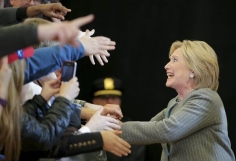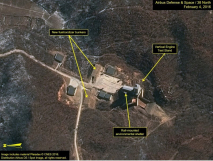
Be very careful: innocent as they may look, your own refrigerator, washing machine or television at home may soon be used by the U.S. government to spy on you.
James Clapper, the U.S. director of national intelligence, told the Senate this week that his agency is looking at the possibility of using the so-called "Internet of things," or ordinary devices connected to the Internet and transmitting various information on its owners using microchips, for surveillance work.
"In the future, intelligence services might use the [Internet of things] for identification, surveillance, monitoring, location tracking, and targeting for recruitment, or to gain access to networks or user credentials," Clapper said, as quoted by The Guardian.
At the same time that he made this revelation, America's intelligence chief also warned that online threats continue to be the primary "worldwide threat" that the U.S. is facing at present. He also admitted that countries adversarial to the U.S. have already made significant improvements in their online capabilities.
"Russia and China continue to have the most sophisticated cyber programmes," Clapper said.
In close second, he said, is terrorism. Clapper told lawmakers at the Senate that the violent Sunni extremist bloc "has more groups, members, and safe havens than at any other point in history."
Clapper also said that the Islamic State (ISIS) is still a major threat to America's security, but the U.S.-backed Saudi war in Yemen was redounding to the benefit of al-Qaeda's local affiliate.
The intelligence chief also admitted that "homegrown extremists," such as those who conducted deadly attacks in San Bernardino and Chattanooga, are the greatest terrorist threats domestically for America. He defined "homegrown extremists" as individuals who launch these attacks "without direct guidance from [the ISIS] leadership."
Back in 2012, then CIA director David Petraeus already brought up the possibility of using the Internet of things for surveillance work, calling such undertaking "transformational... particularly to their effect on clandestine tradecraft."













